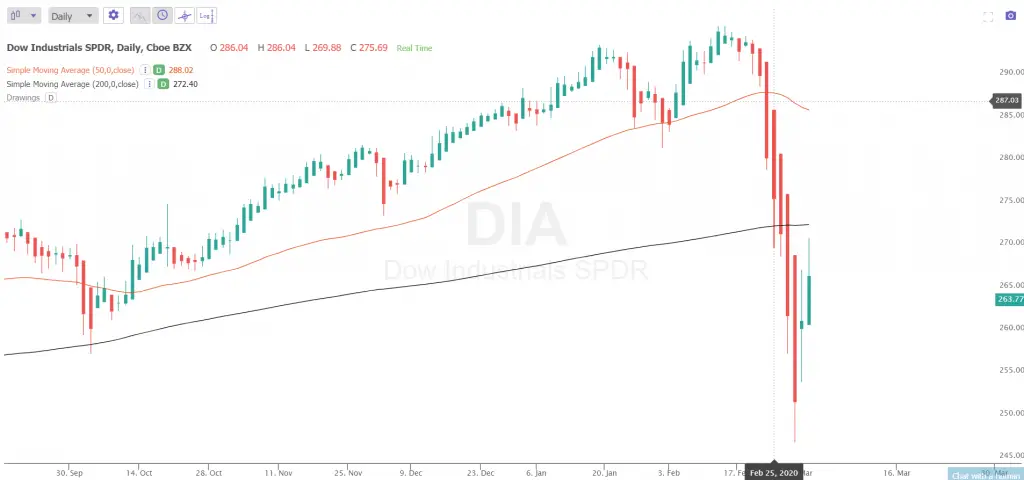With the recent fast stock market correction let’s look at the definition of a black swan event and see if the Coronavirus Correction week fits the parameters.
- A black swan is an event that was unpredictable and far outside normal expectations. People didn’t expect the Dow Jones Industrial Average in just ten trading days to go from an all time high to a 52-week low. That is by far the fastest fall from all time highs in price to wiping out a years worth of gains on record going back to the 1930s.
- A black swan is an unexpected situation that can lead to severe consequences. The speed of the worldwide spread of the virus and the contagion along with the high death toll grew faster than was first expected.
- A black swan is an outlier, as it lies outside the realm of regular expectations. The last major world pandemics were the Asian Flu in 1956-1958 and the Spanish Flu in 1918. The coronavirus was first expected to be contained in China and now unexpectedly is spreading around the world at a high speed.
- The outcome could not have been foreseen. The first person known to have fallen ill due to the coronavirus was in Wuhan, China on December 1, 2019. The stock market kept rallying for over 2 and a half months before it went into a -10% correction in five days.
- It carries an extreme impact. Last week was the fourth biggest 6-day decline in the DJIA in the past 75 years except for three other weeks: October 1987 (Black Monday crash week) September 2001 (9/11 terrorist attacks) October 2008 (Financial Crisis meltdown).This puts this correction in an elite group of historical quick price drops in speed and magnitude.
The February Coronavirus correction week qualifies as a Black Swan event for five different reasons, and is not close to being over, contained, or resolved.

